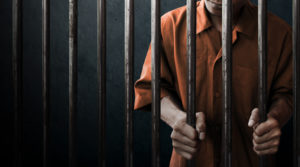
If you have been charged with a crime, it can be many months until your case makes it to trial. If that happens, you do not want to be waiting in jail – you want to be waiting in the comfort of your own home. In most cases, you can do that via bail. However, in some very specific cases, bail may be denied. Learn what those situations are and then contact Law Office of Michael L. Fell at (949) 585-9055 for a free legal consultation with an attorney.
Cases in Which a Judge Can Deny Bail
The California Constitution includes information about when and why bail can be denied in California. It allows bails to be denied in the event of a capital crime, a violent felony if the court believes there is a serious danger that great bodily harm would be done to others if the defendant is released, a felony sexual assault if releasing the accused is believed to put the public or specific persons at greatly bodily risk, and if the accused has threatened someone with great bodily harm and there is reason to believe they can and will carry out said threat.
What to Expect at a Bail Hearing
A bail hearing offers both sides an opportunity to argue for and against bail. This is the first court appearance and the judge will set the bail, in most cases based on the county bail schedule. However, either side of the line (defense or prosecution) can make a case for higher or lower bail. A formal bail hearing must be requested 48 hours in advance for the benefit of the prosecutor.
During this year, the prosecutor and defense can present evidence. This could be written declarations, witness or character testimony, and other types of evidence.
The Court is Required to Consider a Variety of Factors
When the court is deciding whether to set, reduce, or deny bail, they must consider public safety, the criminal record of the accused, how likely the accused will be to show up for their trial, and how serious the charges are. For example, a person charged with shoplifting would be more likely to get bail than a person charged with arson.
Of course, many of those factors are subjective. You may wonder: How does a judge decide whether or not a person is likely to show up for future court appearances? There are a few specific factors they will consider including whether or not the accused has ties to the community, if they live in the community, if they have family in the area, if they are employed, if they own property, and if they have a record of not appearing at previous criminal proceedings.
While there are many things you have no control over when it comes to bail and the criminal justice system, you do have options when choosing a criminal defense attorney. Contact Law Office of Michael L. Fell now at (949) 585-9055 to request a free legal consultation.

